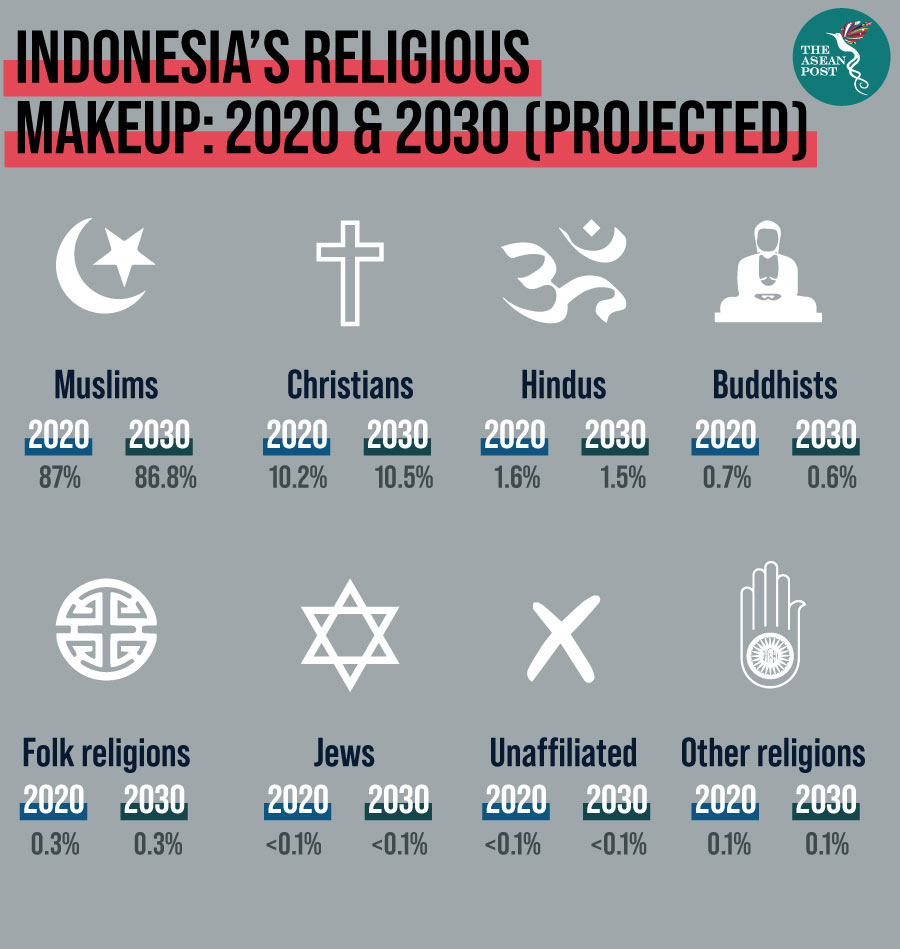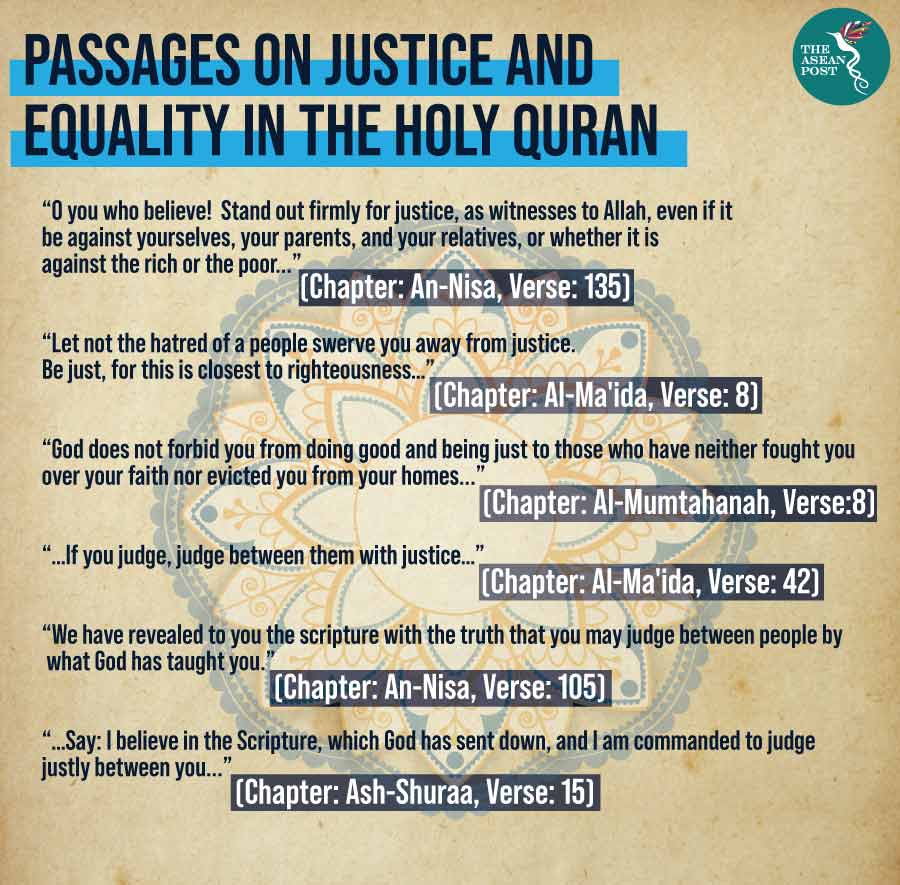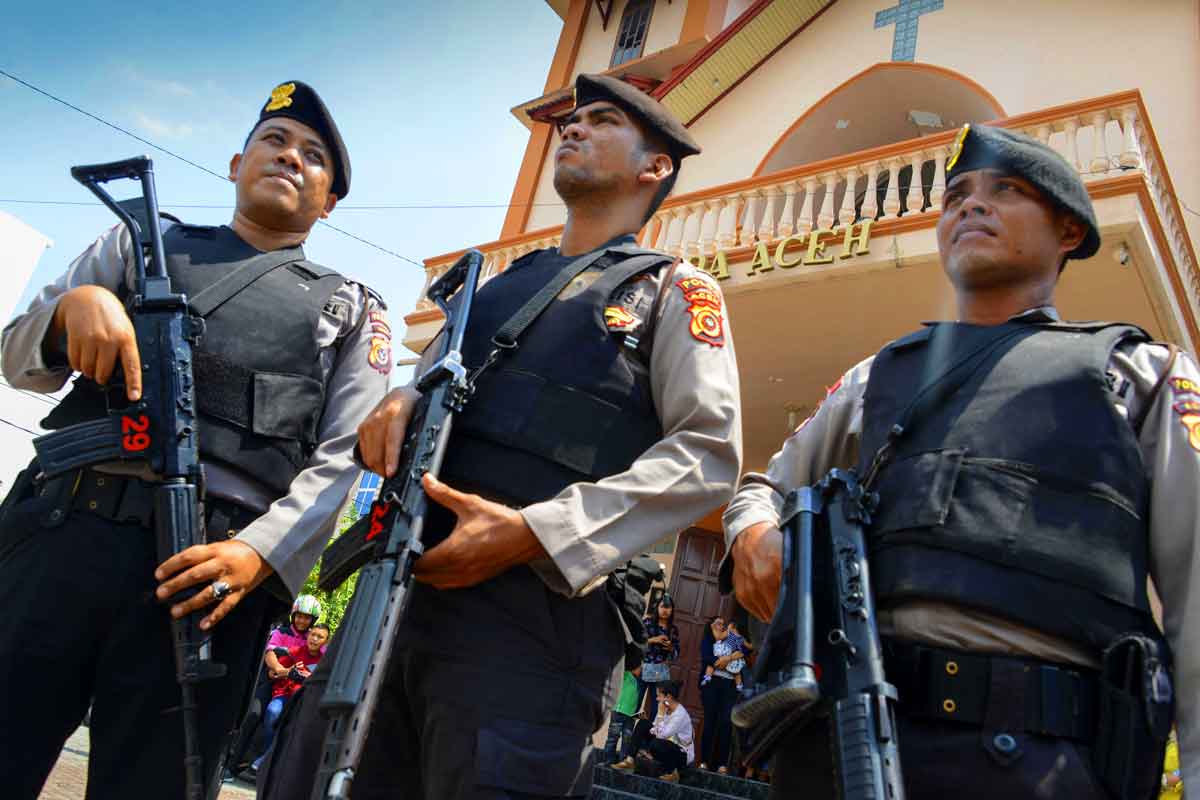At least some form of religious intolerance is apparent in several ASEAN countries. Myanmar has its conflict with the Rohingya issue which is propagating religious intolerance among the country’s Buddhists and Muslims. Similarly, Thailand’s deep south insurgency has resulted in some level of intolerance among the Buddhists and Muslims there as well. In Indonesia, there is the vast Muslim majority and a small Christian minority.
According to forecasts from the Pew Research Centre, Indonesia’s Muslim majority will continue to greatly outnumber the Christian minority for over a decade. In 2020, Muslims are forecasted to make up 87 percent of Indonesians while Christians make up just 10.2 percent. In 2030, Muslims are forecasted to make up 86.8 percent of Indonesians while Christians will account for just 10.5 percent.
Meanwhile, several observers and analysts have expressed worry regarding an increasing intolerance among Indonesians. Only a few months ago, in May, it was reported that protests against the planned construction of what would be the first Hindu temple in Bekasi, West Java, on 5 May.
When speaking of religious intolerance, the case involving Basuki Tjahaja Purnama, better known as Ahok, is also often cited. Ahok was a popular politician who won praise for trying to clean up the traffic-clogged megacity of Jakarta and to clamp down on corruption before his imprisonment. But his downfall came quickly after comments he made on the campaign trail during a re-election bid saw him accused of insulting Islam.
The filmed remarks, which went viral online, sparked mass protests in Jakarta, spearheaded by radical groups opposed to a non-Muslim leader and encouraged by his political rivals.
Purnama's case drew international attention and a wave of criticism, including from the United Nations (UN), which urged the country of 260 million to revise its decades-old blasphemy law.
"Ahok's unjust conviction is a reminder that minorities in Indonesia are at risk so long as the abusive blasphemy law remains in place," said Elaine Pearson of Human Rights Watch.
"Islamists will use it to bring wrongful prosecutions and even more discriminatory regulations against religious minorities."

Tables turned
Indonesia’s blasphemy law has almost always been used either against non-Muslims or Muslim minorities which Indonesia’s religious authorities deem to be deviant. This is despite the fact that the law in Indonesia’s Criminal Code Article 156(a) makes absolutely no reference to Islam in particular. Instead, the law “targets those who deliberately, in public, express feelings of hostility, hatred, or contempt against religions with the purpose of preventing others from adhering to any religion, and targets those who disgrace a religion.”
Today, the tables have turned. Abdul Somad, a popular Islamic cleric, is facing a series of blasphemy charges after a video of him telling a crowd that the Christian crucifix is the dwelling place for an "infidel jinn" went viral. The Meo Brigade (a Christian organisation based in East Nusa Tenggara), the Indonesian Christian Student Movement (GMKI), and Batak-Christian organization, Horas Bangso Batak, are among those who have filed reports against Somad.
Following the charges, Somad issued a clarification where he said, at the At-Taqwa Mosque on Sunday, that "I was answering a question [from the audience]. I did not make my comments to strain relations [between different religions]."
He also said he gave the talk in a mosque and intended it only for a Muslim audience.
"I was answering a question about what Islam thinks of worshipping statues and the Prophet Isa [Jesus], according to the Quran and the sayings of Prophet Muhammad,” he explained.
While Somad has the right to defend himself, it is also pertinent to remember that on 10 October 2016, Ahok had publicly apologised to those he offended with his allegedly “blasphemous” statement, stating that it was not his intention to do so. He also pointed out that during his speech where the crime had allegedly been committed, the residents were not insulted, and even amused during his recitation of the Islamic verse.

The courts found Ahok guilty despite his clarification on the matter. Whether or not this was a just ruling, and whether or not the blasphemy law has a place in today’s world is still being debated. Regardless, Indonesia has committed to the blasphemy law and what is in question now is whether this commitment will be fair or biased.
Preventing religious intolerance among the people is the responsibility of the government of the day, and in pursuit of fulfilling this responsibility, the government should never show favouritism towards a particular religion – regardless of whether the religion in question has a majority following or not.
Thailand’s government has been holding up relatively well against showing favouritism towards a particular religion, Myanmar’s government and its alleged oppression of the Rohingya – perhaps due in part to the Tatmadaw’s influence and power - has made it difficult not to be concerned. Now, it looks like Indonesia’s government will be tested.
Related articles:
